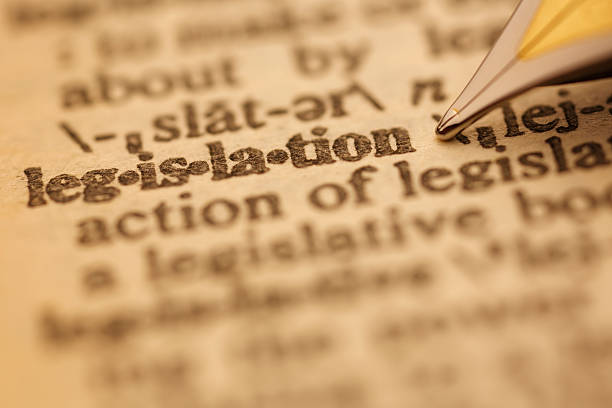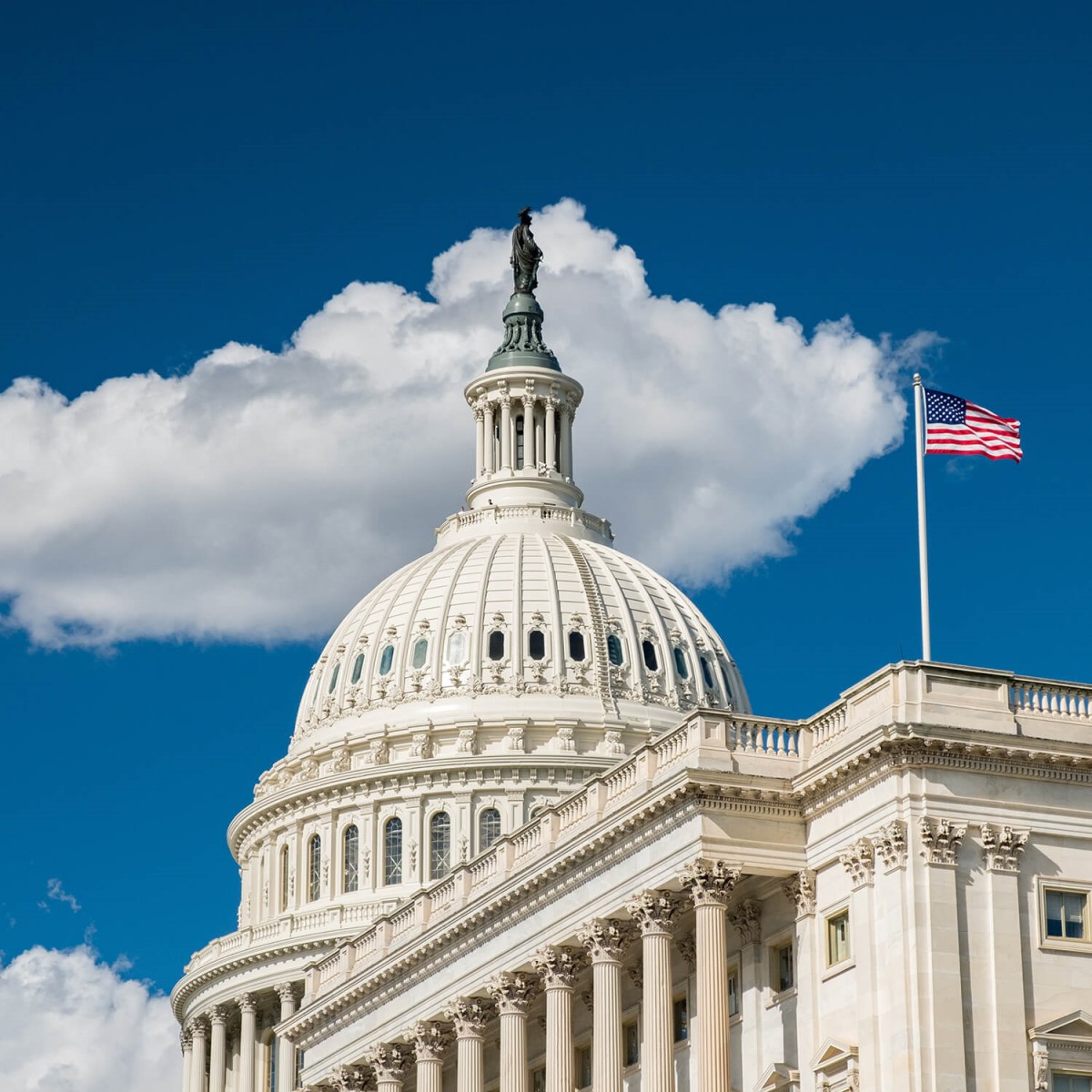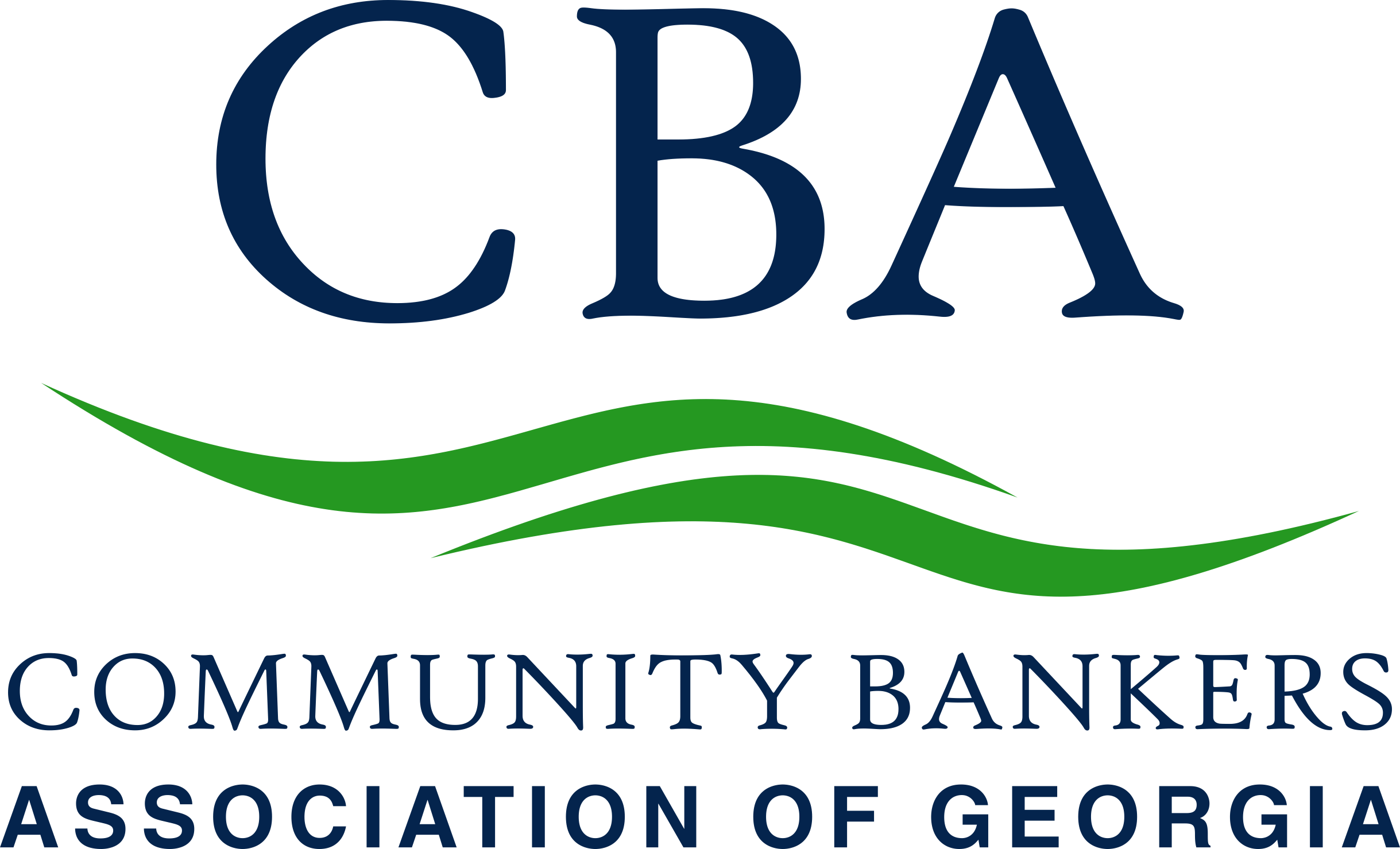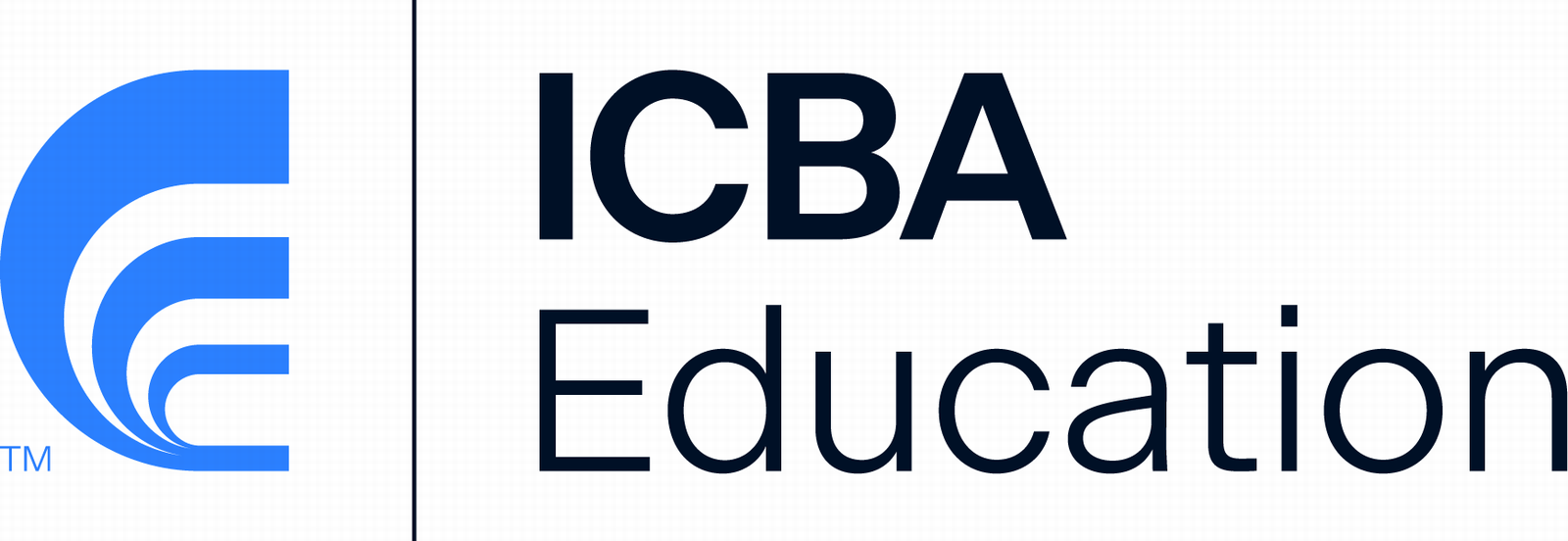Advocacy Update 2025 - Legislative Days 14-17
Legal Reform Package Clears First Hurdle

On Monday, February 10, the Senate Judiciary Committee considered Governor Brian Kemp’s sweeping legal reform package. Those speaking in favor of the civil justice reforms in SB 68 included Insurance Commissioner John King, a trucking company, a small grocer, a childcare provider, an affordable housing provider, a rural hospital and others. Seven personal injury attorneys associated with the Georgia Trial Lawyers Association spoke against the bill.
After more than five hours of testimony and discussion, SB 68 received a do-pass recommendation with revisions offered by the sponsor, Senator John Kennedy. All Republicans voted in favor of moving the bill forward, while the three Democrats on the committee voted against it.
The Committee also considered legislation to regulate third party litigation financiers (SB 69). Discussion on that measure was considerably shorter; it also received a do-pass recommendation with one dissenting vote.
Both bills now rest in the Senate Rules Committee, where they are eligible for placement on an upcoming debate calendar. Georgia residents and business owners are encouraged to continue expressing their support for reform by contacting their legislators, especially their senator, via JusticeNotJackpots.com.
Tort and Legal Reform Issues

Civil Practice Reform (SB 68)
Sen. John Kennedy, R-Macon
Favorably reported from the Senate Judiciary Cmte on Feb-10
Part of Governor Brian Kemp’s legal reform package, SB 68 contains several critical civil practice reforms. The author offered the following revised version during the Feb-10 Senate Judiciary Committee meeting.
- Section 1: Prevents jury “anchoring” for noneconomic damages
The substitute adds an exception to the anchoring provision; attorneys can include arguments about the monetary value of noneconomic damages after the close of evidence, but values must have a rational connection to the facts of the case
- Section 2: Adjusts timing of motions to dismiss, mirroring federal rules to streamline litigation
The substitute cleans up the stay of discovery language to clarify procedural processes
- Section 3: Eliminates the plaintiff's ability to dismiss a case mid-trial
The substitute changes the plaintiff's voluntary dismissal from before the first witness is sworn in (the trial) to the 60th day following the opposing party serving an answer or motion for summary judgment
- Section 4: Eliminates double recovery of attorneys’ fees
- Section 5: Allows evidence of failure to wear a seatbelt in auto injury cases
- Section 6: Clarifies negligent security claims in premises liability
The substitute adds an exception to not limit negligent security claims brought against labor or sex traffickers
- Section 7: Eliminates “phantom damages” in medical billing
The substitute removes a code section reference to the reimbursement of benefit providers in personal injury cases; it adds language covering the procedural process for recovering insurance premiums
- Section 8: Allows bifurcated trials
The original SB 68 contained language to limit recovery to breach of contract claims. That original section 5 has been removed in the current substitute version.
Regulate Third-Party Litigation Funding (SB 69)
Sen. John Kennedy, R-Macon
Favorably reported from the Senate Judiciary Cmte on Feb-10
The Georgia Courts Access and Consumer Protection Act is the second piece of the Governor’s legal reform package. SB 69 acknowledges third party litigation financiers (TPLF) and requires property registration and oversight of the industry by the Georgia Department of Banking and Finance. It provides consumer protection in TPLF engagements and disclosure in litigation. The bill prohibits foreign influence in TPLF and protects Georgia’s state courts system from entities adversarial to state and national interests.
Interchange Fees

The issue of interchange fees has been active for the last several years and the issue resurfaced on February 13 when two different bills were introduced. HB 439 addresses the issue via vendor compensation. HB 431 takes a different approach to the exclusion of sales tax within credit and debit card transactions. CBA stands firm that a solution should be sought at a federal level.
As a reminder, the financial services trade groups and interested parties have been advocating against an interchange bill for the last two years, starting with SB 126 in 2023. A year later, the legislature took a different approach (via HR 1135) and created the House Study Committee on Credit Card Fees on State Sales and Excise Tax. The Study Committee convened in the summer of 2024 and heard testimony from various industry representatives. A final study committee report was issued on the subject with the recommendation of an increase in Georgia’s vendor compensation rate.
The Georgia Public Policy Foundation provided a frequently asked questions about interchange fees and credit card payment systems to House Study Committee members. Click here to read more.
Interchange Fees (HB 431)
Rep. Todd Jones, R—South Forsyth
Assigned to the House Banks & Banking Cmte on Feb-13
HB 431 limits interchange fees charged by payment card networks for credit and debit card transactions at retailers. A payment card network must either exclude the amount of any taxes from the calculation of interchange fees specific to each credit or debit card transaction or, on at least a quarterly basis, refund the amount of interchange fees proportionate to the amount attributable to the taxes. A payment card network who willfully violates this is subject to a civil and financial penalty.
Vendor Compensation (HB 439)
Rep. Bill Yearta, R—Sylvester
Assigned to the House Banks & Banking Cmte on Feb-13
HB 439 revises vendor compensation rates to offset the administrative costs of collecting and reporting sales tax.
Active Measures: Banking

Department Housekeeping Bill (HB 15)
Rep. Bruce Williamson, R—Monroe
Bill passed by the House with a vote of 163-1 on Feb-12
HB 15 is the Department of Banking and Finance’s annual housekeeping bill. The Association has worked closely with the Department since August when it initially released a draft of the bill. These amendments are intended to streamline regulations, improve efficiency, and reduce regulatory burdens across the various sectors regulated by the Georgia Department of Banking and Finance.
Putting Georgia’s Patients First Act (HB 227)
Rep. Robert Dickey, R—Musella
Bill was presented to the House Health Cmte on Feb-10
HB 227 renames low THC oil as medical cannabis and revises the existing diagnosed conditions for which a medical cannabis registration card can be issued. Despite state-level legalization for medical purposes, cannabis remains classified as a Schedule I substance under federal law, creating significant hurdles for cannabis-related businesses especially concerning financials services. HB 342 is also active on this issue.
Active Measures: General Business

Judicial
First Offender Act Sentences (HB 162)
Rep. Leesa Hagan, R—Vidalia
Bill passed by the House Judiciary Non-Civil Cmte on Feb-11
HB 162 provides for the restriction and seal of First Offender Act sentences until such status is revoked.
New Legislation of Interest

Banking Related
Boat Titling (HB 115)
Rep. Jesse Petrea, R—Savannah
Assigned to the House Games, Fish & Parks Cmte on Jan-27
HB 115 pertains to the registration, operation, and sale of watercraft. It allows the Department of Natural Resources to remove, store, and dispose of abandoned vessels but does not denote how a lienholder is notified when a boat is removed. CBA is working with the author and the Department to address this.
Manufactured Homes (HB 377)
Rep. Rob Leverett, R—Elberton
Assigned to the House Banks & Banking Cmte on Feb-11
HB 377 relates to manufactured or mobile homes and provides limited exceptions to circumstances under which a manufactured home shall become real property.
State Accounting Office (SB 118)
Sen. David Lucas, D—Macon
Assigned to the Senate Rules Cmte on Feb-10
SB 118 requires that any payroll system utilized by the state allows for credit union deductions. In speaking with Sen. Lucas, this bill is in response to a personal issue he has had with his direct deposits.
Taxation
Revenue and Taxation (HB 357)
Rep. Lehman Franklin, R—Statesboro
Assigned to the House Ways & Means Cmte on Feb-11
HB 357 provides for tax credits for certain contributions made by taxpayers to certain mortgage loan originators
Technology
AI Discrimination (SB 167)
Sen. Nikki Merritt, D-Grayson
Assigned to the Senate Economic Development and Tourism Cmte on Feb-13
SB 167 requires private entities that employ certain AI systems to guard against discrimination caused by those systems in opportunities related to education, employment, essential government services, financial or lending services, healthcare, housing, insurance, or legal services.
Judicial
Remote Notary (SB 90)
Sen. Blake Tillery, R—Vidalia
Assigned to the Senate Banking & Financial Institutions Cmte on Feb-5
SB 90 provides for electronic notarization of certain notarial acts. Language included in the bill relates to the Unauthorized Practice of Law, which imposes strict statutory obligations on closing attorneys, witnesses and notaries for commercial and residential real estate closings and considerable fines and penalties for violations. The bill also creates a new private right of action. CBA has concerns with the bill in its current form.
Levy and Sale of Property (SB 87)
Sen. Ed Setzler, R—Acworth
Assigned to the Senate Judiciary Cmte on Feb-5
SB 87 increases the homestead exemption in bankruptcy proceedings. Current law allows a homestead exemption of up to $21,500 or $43,000 for a married couple. SB 87 increases the exemption to the full value of the property. As written, the bill significantly changes the amount of exemptions and this causes CBA concern. We will be monitoring the bill as it moves forward.
Property
Manufactured or Mobile Homes (SB 119)
Sen. Russ Goodman, R—Cogdell
Assigned to the Senate Banking & Financial Institutions Cmte on Feb-10
Under current law, a manufactured home becomes real property if it is permanently affixed to land owned by the homeowner, and a Certificate of Permanent Location is filed with the county’s real estate records. SB 119 allows certain manufactured homes to remain classified as personal property even when permanently affixed to owned land. The change aims to preserve the rights and remedies of prior lienholders or security interest holders in these homes.
Possessory Interest in Certain Land by Foreign Persons (HB 358)
Rep. Vance Smith, R—Pine Mountain
Assigned to the House Judiciary Cmte on Feb-11
HB 358 prohibits certain foreign persons and entities from the acquisition of possessory interest in certain land defined as a military installation.
Housing Management Database (HB 374)
Rep. Martin Momtahan, R—Dallas
Assigned to the House Governmental Affairs Cmte on Feb-11
HB 374 allows local governments to establish housing management databases for residential rental property. It mandates the disclosure of foreign ownerships by entities from adversary countries like China and Russia. It establishes penalties for failure to register or disclose information. The provisions extend to owners who own or control at least five units within the local government’s jurisdiction.
Homeowners Protection Act (HB 415)
Rep. Todd Jones, R—South Forsyth
Assigned to the House Judiciary Cmte on Feb-13
HB 415 allows a property owner to file a written affidavit with the clerk of the superior court stating that the property is not subject to a rental agreement. The property owner can then request an unlawful occupant be removed within one calendar day. Legislators attempted a similar approach to address the issue of residential squatting last year within SB 470. Several groups expressed concern about the creation of a property registry.
Notice to Property Owner When Deed is Filed (HB 427)
Rep. Teddy Reese, D-Columbus
Assigned to the House Judiciary Cmte on Feb-13
HB 427 aims to prevent fraudulent transfers and unauthorized changes to property records by imposing a 45-day waiting period before a new deed takes effect. It requires the clerk of the superior court to notify property owners and deedholders when another deed is filed.
Solar Energy Devices (HB 389)
Rep. Eric Bell, D—Jonesboro
Assigned to the House Judiciary Cmte on Feb-12
HB 389 prohibits homeowners’ associations from preventing property owners from installing solar energy devices on common roofs or roof structures.
Tenant Communications (HB 399)
Rep. Mary Margaret Oliver, D—Decatur
Assigned to the House Judiciary Cmte on Feb-12
HB 399 requires certain residential landlords to have in-state staff to manage tenant communications related to such properties.
Judicial Foreclosures (HB 403)
Rep. Eric Bell, D—Jonesboro
Assigned to the House Judiciary Cmte on Feb-12
In Georgia, nonjudicial foreclosure is the most common method used by lenders to repossess property. HB 403 prohibits nonjudicial foreclosure, thereby requiring the lender to file a lawsuit in court to obtain a foreclosure order. It also prohibits property associations from placing a lien on property for unpaid fees and assessments.
General Business
Georgia Consumer Privacy Protection Act (SB 111)
Sen. John Albers, R—Roswell
Assigned to the Senate Economic Development and Tourism Cmte on Feb-6
SB 111 seeks to protect the privacy of consumer personal data. The bill defines consumers’ rights, the responsibilities of data controllers and processors and requirements for data protection assessments. The bill contains a requested exemption from last year’s bill (SB 473) for financial institutions and affiliates of financial institutions, data or personal information subject to Title V of the federal Gramm-Leach-Bliley Act.
Contracts with Small Businesses (SB 127)
Sen. Timothy Bearden, R—Carrollton
Assigned to the Senate Regulated Industries and Utilities Cmte on Feb-11 and was passed by the Cmte on Feb-13
SB 127 relates to contracts and makes certain disclosure and notification requirements concerning automatic renewal provisions applicable to service contracts with small businesses.
ICBA Capital Summit

ICBA’s Capital Summit will be held May 12-15, 2025 at the Gaylord National Resort & Convention Center, National Harbor, Maryland. The ICBA Capital Summitt empowers you to make your voice heard on Capital Hill, ensuring policymakers understand the vital role of community banks in driving growth and opportunity. Join CBA at this event and register now.


